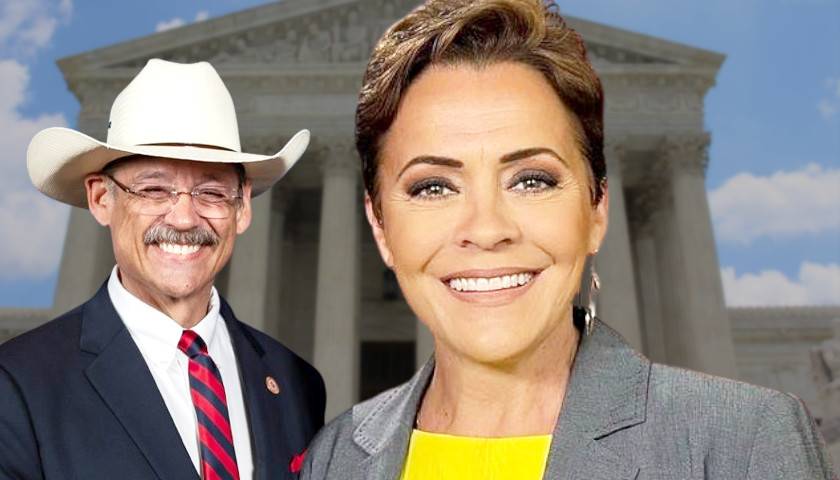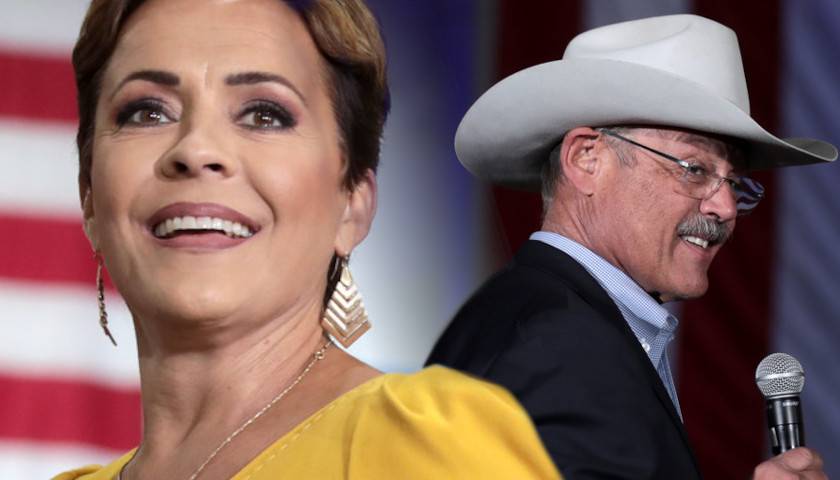The Arizona Republican Party (AZGOP) submitted a joint Amicus Curiae brief on Thursday with the Georgia Republican Party and the Republican State Committee of Delaware supporting Kari Lake’s and Mark Finchem’s Petition for Certiorari with the U.S. Supreme Court. The pair are appealing the lower courts’ decisions against their lawsuit challenging the use of electronic voting machine tabulators in elections. Under the new leadership of AZGOP Chair Gina Swoboda, who has a lengthy history in election integrity work including heading the Voter Reference Foundation, the AZGOP is heavily focused on election integrity.
Authored by attorney William J. Olson, the brief argues that the Ninth Circuit Court of Appeals erred by dismissing the case claiming Lake and Finchem lacked standing. The court affirmed the trial court’s granting of the defendants’ motion to dismiss, asserting that the pair lacked standing because “speculative allegations that voting machines may be hackable are insufficient to establish an injury in fact under Article III.” The complaint emphasized that the lower courts “conflated standing with merits, twisting the standing rules to require much more — that the complaint prove facts sufficient to grant relief.”
Read More



